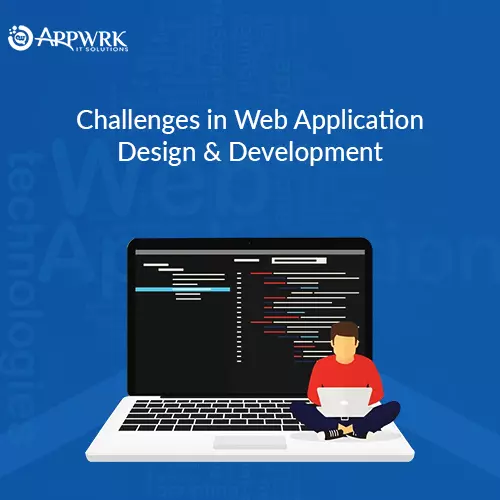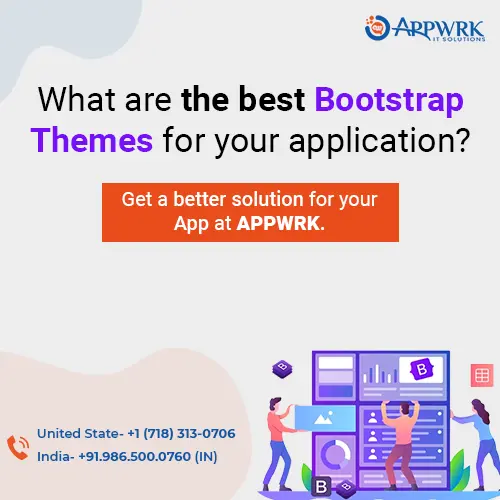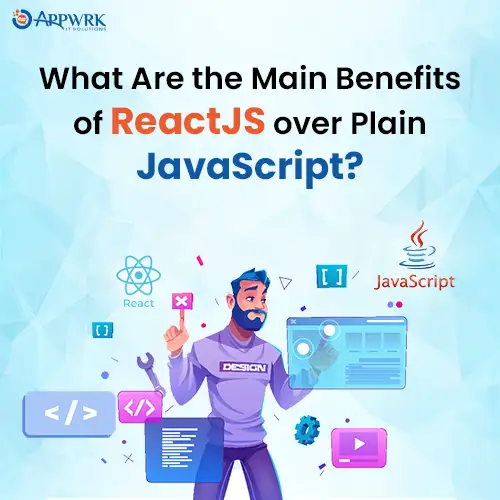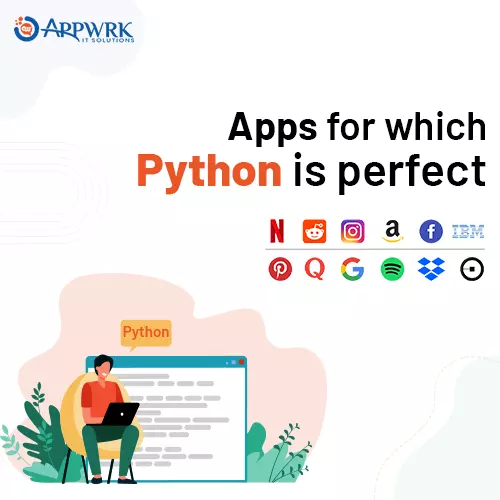Top-Notch Frameworks To Develop Progressive Web Apps
Can we imagine our life without smartphones? The thought only holds our breath. Now the whole internet is shifted to mobiles from laptops or computers. Digitisation of companies is the push-up for the evolution of smartphones and the commencement of new websites. The emergence of new technology, high internet speed, and budget-friendly smartphones cause the increase in usability of Mobile apps, as per Statista.
But merging both smartphones and websites to deliver a magnificent experience for the customers has been challenging for web development companies. With the advent of the Progressive Web Apps (PWA) in 2015, this problem gets solved. Research has proved that app development and maintenance can get 33% more saved if PWA can provide all mobile web needs. In this article, we will discover a top-notch framework and what’s their pros and cons. Read it thoroughly and initiate your progressive app today.
The mobile app downloads have increased 45% since 2017. That’s why the industries now anticipate the generation of over $156 billion in consumer Apps by 2022. The top web app developers consider the client requirement – the functionality they want in the App, how much flexibility will end-user attain, accordingly make a selection of a particular framework.
Table of contents
What is Progressive web Application?
Progressive Web Apps uses modern web capabilities to be designed in a way to deliver fast, appealing, engaging, and reliable mobile app experiences to end-users and businesses.
It is basically a website that works as an application without the requirement for installation. So that similar to web apps, they can be connected to all users. Progressive web applications are built with emerging web APIs and features and traditional progressive enhancement strategies to deliver a native experience.
In progressive web apps, modern features are added to the browsers, and simultaneously web transparency makes your application more reliable and easily installable.
As per the Pinterest PWA performance case study, when they recreate their mobile App using React, Webpack, and Redux, the result was amazing. Which was as:
- Time spend up – 40%
- Ad revenue generated by the user up – 44%
- Core engagement up – 60%
COMPARING PWA TO THE NATIVE APPS

Any web application can be considered as PWA if it has the following features-
Service Workers
A service worker is essentially a javascript file that runs apart from the main browser thread and allows asset caching, intercepting network requests, and delivering push messages without a web page or user interaction. Hence web developers can create relatively fast web pages and offline experiences with the help of service workers.
Secure Contexts (HTTPS)
A web app must run on a secure network. A secure web application is considered a trusted site if the user needs to do some transaction. All the features of PWA are present only when the app has loaded using HTTPS.
Manifest File
A file that ensures that your app is discoverable and how to appear to end-users. These files convey all the details required to transform the website into an app-like format. Some of the elements described by manifest files are the name of the app’s start URL, icons, etc.
What are the benefits of Progressive Web Apps?
- It is compatible with operating systems and mobile devices like smartphones and tablets.
- Easier to develop and maintain than native.
- PWA is technically a website. Hence by using proper SEO strategies, we can enhance its search ranking.
- Due to its high adaptation capacity, it can work on various devices and platforms.
- Here in all updates occurred automatically no need for manual ones.
- It provides integrated experiences to users providing them to take advantage of the same UI(user interface) for both browsers and the app.
- You can use push notifications to intact users
- They work offline, unlike regular sites.
- Installing a PWA can result in more engagement.
All these productive and comprehensive features of PWA is the main reason behind its increasing popularity. As we all know ‘Necessity Is The Mother Of Invention”. That’s why the increased requirement for PWA led to the commencement of various frameworks. Here we will go through the Top-Notch frameworks to develop the progressive web apps.
Top-notch framework for Progressive Web Apps
1. ReactJS

React is in demand among web app developers due to its extensive javascript library. It was released in 2013 by Facebook. This framework allows creating single-page and multi-page apps, making changes and content load within a single page. It is a widely used PWA for building frontends. Application rendering in React is fast, faultless and absolute because it uses Virtual DOM. The components in React were created using JSX. Web developers can reuse these components across different web applications. You can even open-source all components which are further used by other development teams. Instead of considering the entire web app, it divides the complex UI/UX development components into simpler ones.
It is one of the widely used and popular frameworks. There are various pros and cons associated with it. It’s better to go through them before choosing this progressive web application.
PROS
- Reusable components
- The look and feel of ReactJS is similar to the native application as it uses native API
- The applications built in React are very flexible, extensible, and scalable.
- In this framework, developers can generate API integrations, static and server-side rendered web pages, and routing by utilising various javascript libraries.
- It provides Virtual DOM. As a result, rendering processes get speed up.
CONS
- A proper understanding of JSX is required to make it easier to write and add HTML.
- It is not SEO-friendly
- In React PWA solutions, with increasing flexibility, more functionality issues arrive.
- Due to a lack of clarity in its methodology, implementation is quite tricky.
2. AngularJS

Angular Js uses a javascript ecosystem to create vigorous, reliable, and definite Progressive Web Applications. It came into action in 2010 by Google. Since then, it is the first choice to render various web apps. It allows web developing firms to create applications using JSON configurations. Therefore they don’t need to build web applications from starch.
It is a great framework to work with as it is fully modular and has excellent compatibility with all elements. This framework can help create a web application with ease because it saves you from monotonous and repetitive tasks. Its Unique compilation ‘AOT’, which permits a speedy application, as before the browser downloads and runs the apps it converts Angular HTML and TyScript code into simple JavaScript code. Due to its simplicity and exclusive features, any developer can handle it even with less expertise.
PROS
- New Angular 8 came up with two additional CLI commands, which simplified app installation on mobile devices.
- AngularJS has a vast community of developers like React JS.
- Fully modular elements and clearly defined methodology makes its implementation very easy.
- Extensive support to developers with timely issues fixed by Google.
CONS
- Typescript is used to write web application codes, so you need to learn Typescript.
- There is no standardisation of codes as multiple solutions are available for a particular problem.
- Not very SEO-friendly.
3. VueJS

Vue arrived in recent years, so not so known to everyone as compared to Angular and React. But now, it’s gaining popularity between web app developers to create front end apps. Many of Vue’s features are similar to React, like efficient rendering of the actual DOM and virtual DOM for lightweight. The only difference is that Vue focused on improvements in existing technologies like CSS and HTML. Whereas React mainly used Javascript and moved towards the advanced route.
Vue progressive web apps frameworks are very versatile and ensure you with a complete ecosystem. The pros and cons associated with this framework are as follows:
PROS
- It is lightweight due to its compact size
- Companies like Laravel and Alibaba support this framework.
- Web development agencies can quickly create applications in Vue if they are comfortable with CSS, HTML, and Javascript.
- Virtual DOM of Vue renders productive performance in apps.
CONS
- Due to the small development team of Vue, support is more petite.
- Minimal plugin support.
- Sometimes great flexibility of this framework goes negative and creates issues.
4. Polymer

Google builds polymer in early 2015. Polymer provides one of the best documentation. It is a well-defined framework that runs on web technologies like HTML, Javascript, JSS. Polymer is also an open-source web app with many PWA tools and with a wide range of templates. Web development firms are frequently using this framework.
Polymer uses a PRPL pattern, so here you will get a better optimization of the web applications.
PROS
- It provides APIs which are easy to understand.
- Implementation is easy in this progressive web apps due to the extensive documentation it provides.
- The responsive layouts, data tier, and routing provide full web app stack support.
CONS
- It is not SEO-friendly. Hence the purpose of building a web app is not achieved.
- High page loading time
- Sometimes it requires debugging tools.
See how easy and effective the layout of a shopping app using the Polymer framework.
5. Ionic

It is an open-source framework launched in the year 2013. It is known for creating Hybrid applications using HTML, CSS, and JavaScript. It comes with a traditionally styled layout and mobile UI elements. It allows developers to have a web view to run a web page in the browser. Working on this framework is cost-effective as it provides 250 in-built plugins. Here mobile apps and web applications are built on a cross-application basis. It consists of an extensive library of IOS and Android components. For many of the core-functionality Ionic also uses Angular JS. Ionic is an HTML5 framework, so it soon spread its wings on mobile, precisely as it has on the laptop. It comes in two editions- Community and Enterprise, both have their benefits. Enterprise is generally for developing large scale corporate applications.
PROS
- The development cost is less, as it is an open-source platform.
- Due to its extensive library, APIs are easily accessible without coding.
- Easy for developers to learn.
- The built-in browser tools and debugging tools in the Ionic leads to easy maintenance.
CONS
- A frequent update of the web application with the latest version is required here.
- Lack of in-built tools for collecting analytic data on installation and for receiving feedback from application clients.
The case studies have proved that Ionic is winning web developing firms’ hearts by creating a unique experience for many businesses.
6. Svelte
Svelte is one of the compatible progressive web apps. It is quite a new framework released in 2019 only. In just a short time, svelte gained popularity and has popular adapters like GODADDY and THE NEW YORK TIMES. Svelte 3, which is just into action, is taking the framework ‘to programming language territory.
Svelet case study: Setting up the E-SHOP
PROS
- Due to its compiler nature, it provides fast loading and execution.
- It ensures plain CSS and various other CSS frameworks.
CONS
- It’s a very new framework and new community.
- Not very detailed documentation.
- Lack of TypeScript support.
7. PWA Builder

WA Builder as an open-source project to push forward the adoption of the progressive web apps. If you want to change your current website into a progressive web apps, then PWA Builder is the best solution for you. Just enter your website URL and then you are ready to be processed. The process will be done by itself. In between, you will receive acknowledgement where to make changes. It’s a straightforward and effortless operation. The extensive documentation provided here is an add on help to newbies. It uses Vue.JS for web applications. The PWA Builder 2.0, which was recently released, also draws its official support to the Mac desktop platform driven by WebKit. The framework focused on building cross-platform web applications, including obtainability in place. Although PWA Builder aims to ease traditional applications, there are both pros and cons associated with it. Let’s learn from them. Submitting a PWA to Microsoft Store using PWA Builder
PROS
- Extensive documentation
- Support of dedicated Microsoft team
- Comprehensive building and converting processes.
- Uses Vue. JS and Node. JS
CONS
- Difficult for developers to manage applications due to much automation of processes.
- Restricted flexibility
Do you agree that selecting a PWA framework is crucial for your project?
PWA is a beautiful experience for developers and end-users. Even without an internet connection, applications get easily downloaded. PWA uses transport layer security, so there is no doubt about the safety of users’ data. It proves that PWA is an excellent choice for developers while developing mobile apps. The productive popularity of PWA results in the timely development of new frameworks with improved features or some changes in the native ones. Based on the type of work you want to render at the user end and the expertise of your web developer, how far he can achieve them, decides your framework. As all frameworks have some good and bad experiences, but the one which works for your business is your Triumph.
Wrapping Words
After knowing all these top-notch frameworks for a progressive web apps, we hope you clarify which framework works for design running in your mind. However, which will work for you is decided firmly by your web developer expertise and your app needs. Various factors like- how much responsiveness, flexibility, interactive, scalable, user-friendliness, etc., you want to achieve must be considered while taking a final call.
If your business is in need, here at APPWRK IT SOLUTIONS, our web developers will deliver you the desired deed. As the top web development company in Florida, New York, Australia and and India, we specialize in PWA implementation with guaranteed fast, effortless and engaging results. Contact us today and get a tailored solution for your business.
About The Author







 Free Quote
Free Quote
















































